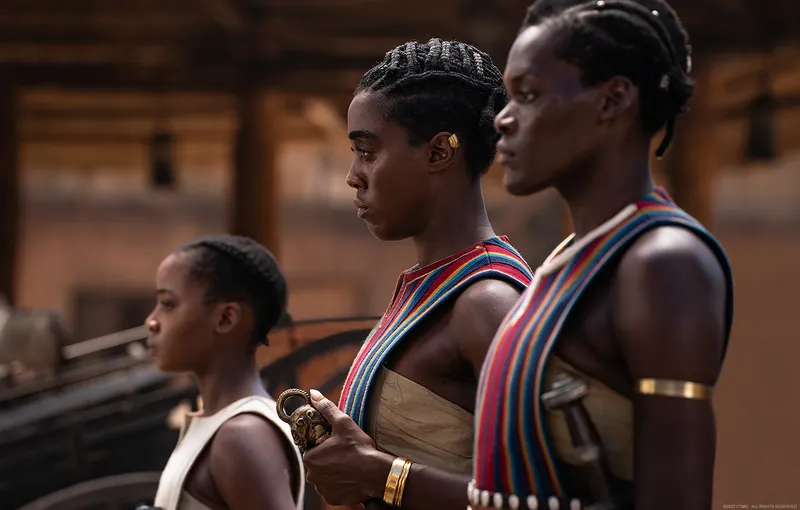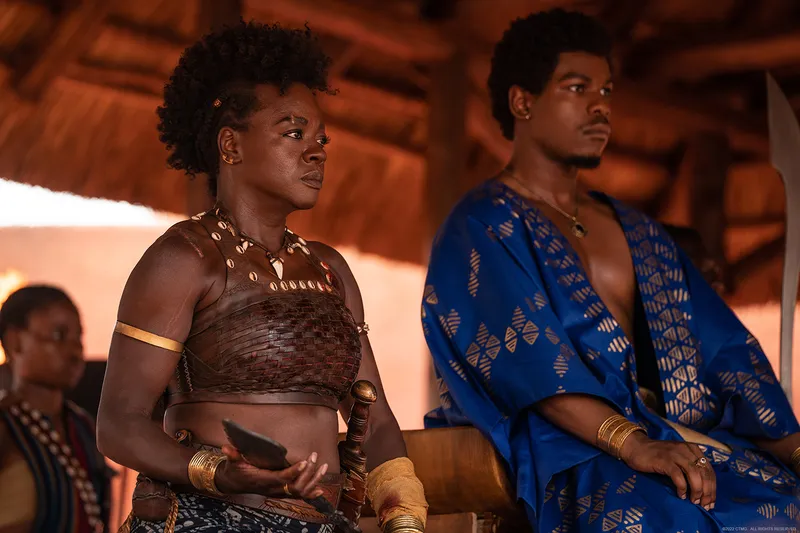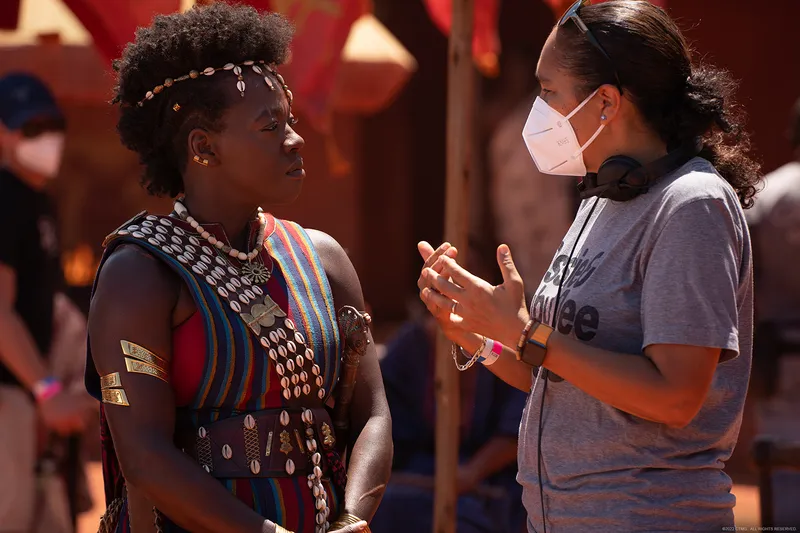Cinematic spectacle, with a superb Viola Davis, makes The Woman King a worthwhile watch
Loosely based on the fables of warrior tribes from Africa defeating European slave traders, The Woman King is an immersive action-packed spectacle with a heartfelt story and committed performances.
Cinematic and emotional, The Woman King, starring Viola Davis, is a revitalising take on the classic war drama. It is loosely based on the fables of warrior tribes from Africa defeating European slave traders.
Upon its release in the Western markets, it evoked mixed reactions—with some people criticising the movie for glossing over the role of the Dahomey tribe in slave trade and others applauding its fictional interpretation of an actual all-woman African army from the past.
But beyond these debates, The Woman King is an immersive action-packed spectacle with a heartfelt story and winsome performances.

Here’s why 'Everything Everywhere All at Once' is worth watching, beyond its 11 Oscar nods
The story draws from historical events to tell a fictional tale. In the kingdom of Dahomey—a powerful African state in the 18th and 19th centuries—a new King (John Boyega) and his sizeable fortune are protected by the Agojie, an all-woman warrior unit. A formidable general, Nanisca (Viola Davis), leads this army that vows to never marry or have children.
The kingdom trades in slaves with Portuguese traders and has grown rich over time. Nanisca wants to end this trade of African people and replace it with palm oil and other homegrown products.
After some court intrigue, the focus quickly shifts to Nanisca’s officers Amenza (Sheila Atim) and Izogie (Lashana Lynch). Izogie trains and mentors new recruits, including captors from other tribes who are given a choice to join the king’s guard or walk away.
On the doorstep of this fierce army, a father leaves his adopted daughter, Nawi (Thuso Mbedu), exasperated with her refusal to marry and obey her husband. A headstrong and an accomplished fighter, Nawi builds a deep connection with Izogie and displays bravery beyond her years.

As slave traders ally with a rival kingdom to defeat the Dahomey kingdom, battle preparedness takes centre stage. This also throws up unresolved past trauma for Nanisca and compels her brave army of women to take on challenges beyond their training and reach. In the end, good triumphs over evil.
Viola Davis and her co-actors ferociously wield machetes, knives, and traditional weaponry, making your adrenaline rush through the film’s fights.
The technical brilliance of the action and the stunts (by Jenel Stevens, Davis’ double and action choreographer, along with stunt coordinator Daniel Hernandez and team) bring in authenticity and cinematic grandeur. The scenes depicting the training for the fights and the conditioning to become a warrior capture each key character’s journey and battle skills, culminating in a befitting finale.
Films around the collective trauma of slavery in the past (Amistad and 12 Years a Slave) have shown European and colonial hand in brutal ugliness. The Woman King focuses on slave trade being co-opted by some African tribes—an uncomfortable fact.
The making of an Agojie warrior is shown in great detail, thus making their monk-like single-minded dedication convincing.

Weaving fantasy into reality, The Woman King does a fine job of arguing for the competence of women warriors and leaders in an imagined past. Viola Davis leads a cast of committed actors such as Thuso Mbedu and Lashana Lynch to build camaraderie and a sisterhood of faith, which makes the fictional parts credible.
The Woman King is an entertaining and engrossing big-screen drama for those who like immersive films that say something worthwhile.
Rating: 3.5/5
Edited by Swetha Kannan







